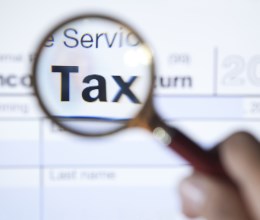
HMRC has been using nudge letters to encourage UK residents to check their tax affairs are up to date for around ten years. Recently, however, the taxman has upped his game and a large number of these letters has been sent to the individuals HMRC suspects have not reported overseas income and gains.
While there could be a perfectly good reason for this, it is important to remember that HMRC is tasked with policing the tax system - and where there is a risk that tax is outstanding to investigate the matter rigorously.
The main cause of the recent increase in letters to UK residents with overseas assets is the information exchanged under the Common Reporting Standard (CRS). This is an OECD initiative to ensure details of financial assets are exchanged automatically between the country in which the assets are held and the country where the beneficial owner or account holder is tax resident.
It is likely that the relevant financial institution will have asked the account holder to confirm their contact information, including where they reside, for this purpose.
The letters encourage the recipient to firstly check whether their tax affairs are up to date and where necessary to disclose unreported income and gains. The letters suggest, where the recipient has historical tax liabilities, that the Worldwide Disclosure Facility is used to report the sums owed. This is an online service set up by HMRC to report the tax, interest, and any penalties.
The recipient does not need to deal with the disclosure themselves and can ask their tax adviser to deal with the matter. It is always recommended that tax advice be sought before making a disclosure to HMRC to ensure that the right approach is taken and to minimise the individual’s exposure.
Alternatively, if there are no historical issues, it would be prudent for the individual to ask their professional adviser to respond. HMRC often asks the recipient to sign a certificate, it is not a statutory or legal obligation to do so and it is normally recommended that the adviser write on their client’s behalf to HMRC.
Although a response is not mandatory, it is inevitable that if HMRC believes that the letter has been ignored they will interpret this negatively and start a tax investigation. It is more sensible, simpler, and cost effective to respond to the letter.
A common question asked is: “why have I received this letter, as I have always reported the income and gains or suffered withholding taxes in the country in which the assets are based?”.
Unfortunately, the standard position is that UK residents are required to report their worldwide income and gains each year, and if tax has already been paid, claim the appropriate tax credit. There are special rules for individuals who do not originate from the UK. The legislation for non-UK domiciled individuals (non-doms) is complex and has changed considerably over the past 12-years or so.
It is important that anyone who considers that they can take advantage of the rules for non-doms seek tax advice to confirm that they qualify and to discover to what extent they can take advantage of them.
One other common issue is the penalty regime that applies to tax unpaid for overseas assets. The letters refer to the significantly higher tax-geared penalties of up to 200 percent of the tax paid late - and recipients may be deterred from making a voluntary disclosure for this reason alone.
It is important to remember that the nudge letter is a pre-cursor to a tax investigation. The idea is to encourage people to make a voluntary disclosure and resolve past issues; HMRC has limited resources to investigate all the information in their possession. If the letter is ignored it is likely that the recipient will face the maximum penalty and in the most serious cases may also face the risk of a criminal investigation.
Where appropriate, the recipient may be able to show HMRC that they have a reasonable excuse for not reporting the income or gains and this will substantially reduce the penalty loading, and the years that need to be included in any disclosure. A tax adviser will be able to assess the specific rules that apply to overseas income and gains and ensure that the individual’s liability is kept to a minimum.
Most recipients of the nudge letters say that they believed their tax affairs were up to date and the intervention from HMRC has caused them a great deal of stress and anxiety. They feel as if they are already under investigation. But as the letters are not part of a formal procedure there appears to be little protection or information available on what the letters mean.
One unexpected consequence of seeking advice may be that the adviser establishes that there may have been an overpayment of tax and should be able to assist the individual to claim the tax back.
HMRC is conscious that people with passive or investment income and gains are most probably able to pay any unpaid taxes. It is inevitable that we will continue to see this ‘scattergun’ approach from HMRC to police the tax system and to bring in yield at such a difficult time for the Treasury.
The best advice for anyone that receives a nudge letter is do not delay, seek tax advice, and ensure that the matter is resolved quickly and efficiently.




